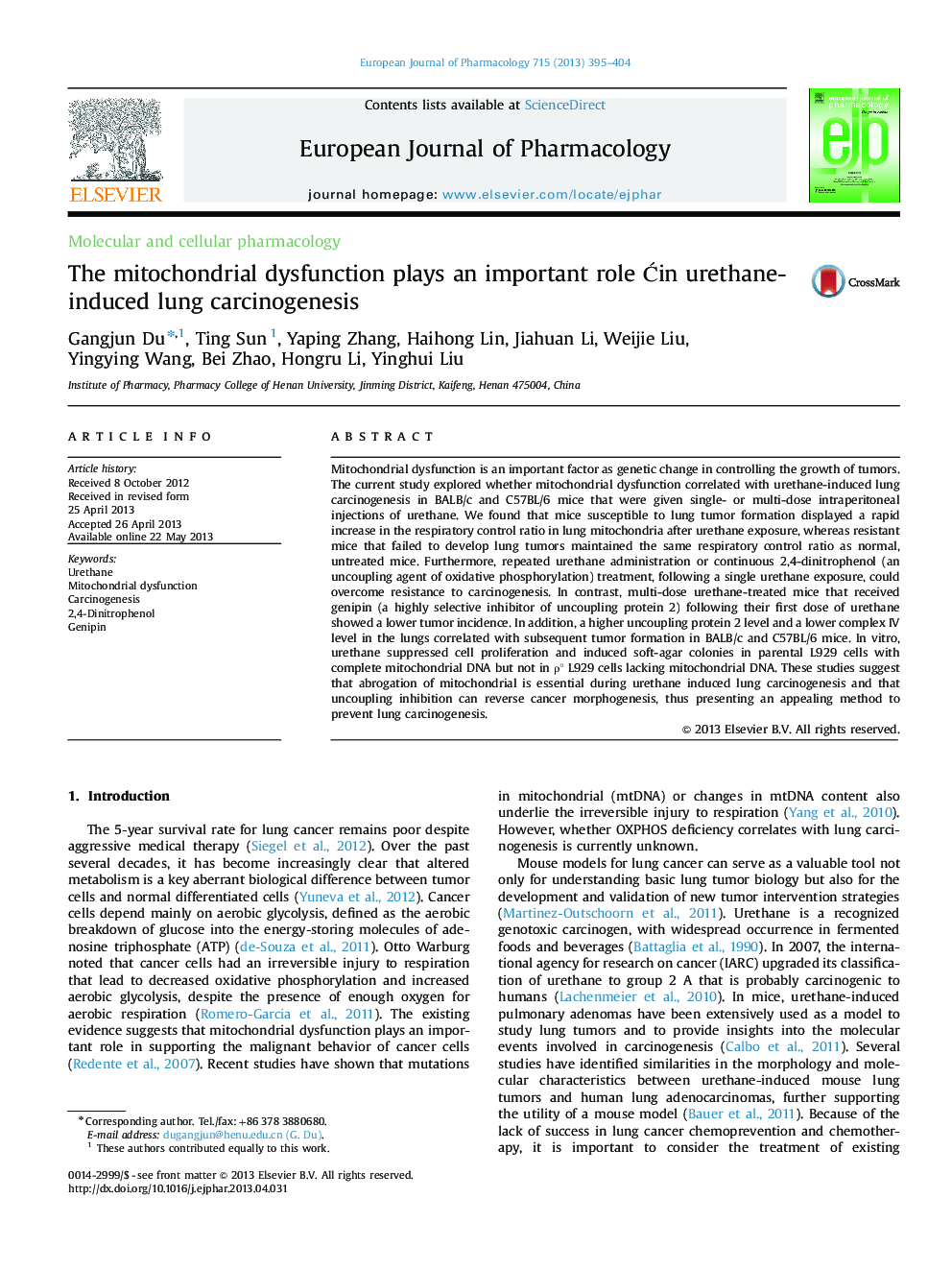| Article ID | Journal | Published Year | Pages | File Type |
|---|---|---|---|---|
| 2532057 | European Journal of Pharmacology | 2013 | 10 Pages |
Mitochondrial dysfunction is an important factor as genetic change in controlling the growth of tumors. The current study explored whether mitochondrial dysfunction correlated with urethane-induced lung carcinogenesis in BALB/c and C57BL/6 mice that were given single- or multi-dose intraperitoneal injections of urethane. We found that mice susceptible to lung tumor formation displayed a rapid increase in the respiratory control ratio in lung mitochondria after urethane exposure, whereas resistant mice that failed to develop lung tumors maintained the same respiratory control ratio as normal, untreated mice. Furthermore, repeated urethane administration or continuous 2,4-dinitrophenol (an uncoupling agent of oxidative phosphorylation) treatment, following a single urethane exposure, could overcome resistance to carcinogenesis. In contrast, multi-dose urethane-treated mice that received genipin (a highly selective inhibitor of uncoupling protein 2) following their first dose of urethane showed a lower tumor incidence. In addition, a higher uncoupling protein 2 level and a lower complex IV level in the lungs correlated with subsequent tumor formation in BALB/c and C57BL/6 mice. In vitro, urethane suppressed cell proliferation and induced soft-agar colonies in parental L929 cells with complete mitochondrial DNA but not in ρ° L929 cells lacking mitochondrial DNA. These studies suggest that abrogation of mitochondrial is essential during urethane induced lung carcinogenesis and that uncoupling inhibition can reverse cancer morphogenesis, thus presenting an appealing method to prevent lung carcinogenesis.
